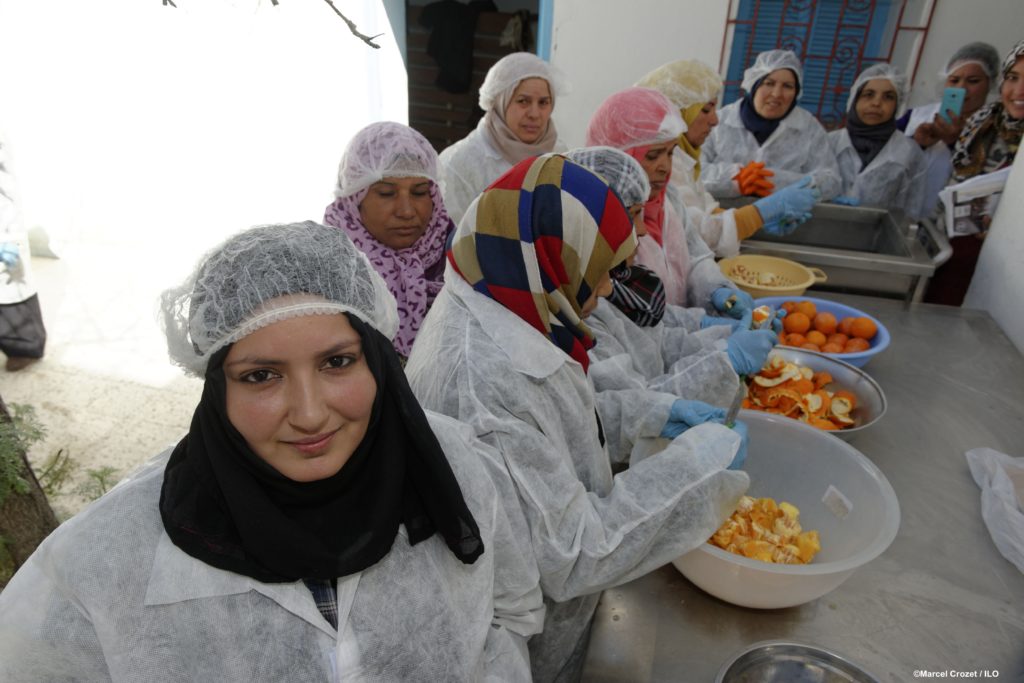Courtney Geary, Asma Ben Hassen, Arbia Saleh and Ahmad Awad

Copyright : Marcel Crozet / ILO
In the Arab region, social protection systems have historically suffered from several shortcomings, including high degrees of fragmentation, low coverage rates, and financial unsustainability. However, both Jordan and Tunisia have committed in recent years to expanding and reforming social protection systems. While civil society has the potential to positively influence the development of social protection policies in both countries, social dialogue has historically been suppressed. This paper seeks to examine the current context of social protection policy generation in both countries, providing an comparative examination of the historical roles that social dialogue has played in the formation of social protection policies and analyzing how periods of restricted public freedoms and tightening of civic space has limited civic participation in policy formation. The paper also provides a comparative analysis of the current social dialogue mechanisms and public freedoms in both countries, and in particular shifts which have occurred post-2011. By doing so, this paper highlights the role that civil society has played in the creation of recent social protection reforms, as well as identifies the significant challenges to civic participation in policy development which remain in both nations.
To read the working paper: click here
Disclaimer: Except for articles published on Blog Tadamon and the content of the resource pages, all materials on this website, including their respective photographs, are indexed from their original sources. All rights remain with the respective copyright holders.

Comments are closed, but trackbacks and pingbacks are open.